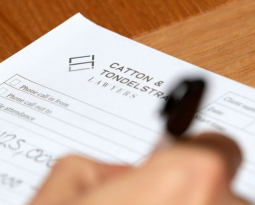Why it’s best not to talk to anyone about your legal advice
Legal advice provided to a client within the solicitor client relationship is protected by a legal confidentiality concept called “legal professional privilege”.
What is “legal professional privilege”?
“Legal professional privilege” refers to the confidentiality of all information communicated between a lawyer and client. In effect, it means that anything said between a lawyer and client is protected from being forcibly revealed in court proceedings.
Why is it needed?
The concept of legal professional privilege exists so that clients can be free to discuss all issues with their lawyer, to obtain the best legal representation possible based on all the facts, without fear of any implications of disclosing all of their information to their lawyer.
It also exists to ensure that lawyers are free to give fulsome advice to a client, whether the advice is that their case is good, bad, or otherwise so that a client can be aware of all risks and benefits without fear that their opponent could also be provided with that information.
Legal professional privilege is an important part of the legal process that helps in the administration of law.
Why you need to be careful what you say
It is important that you don’t inadvertently waive legal professional privilege by explaining your actions were based on the advice of your lawyer.
To do so to the opposing party, in public, or in a court forum means that your privilege may be waived, and your lawyer could be forced to give evidence about whether or not that advice was really provided or not.
When giving evidence in court proceedings a litigant may be asked various questions and inadvertently say words along the lines of “my lawyer advised me to….”. The consequence of doing so is that all advice given by that lawyer loses the confidentiality that would have applied to the advice, and they may have to give evidence about the truth or otherwise of the litigant’s evidence (that is, the advice).
It is very important for any person who receives legal advice that they not disclose the contents of that legal advice, whether by communications with the other party, in evidence by affidavit or orally, or by otherwise producing it publicly.
Legal professional privilege is intended to preserve the confidential nature of all communications between a lawyer and client so that there is confidence in the legal system.







